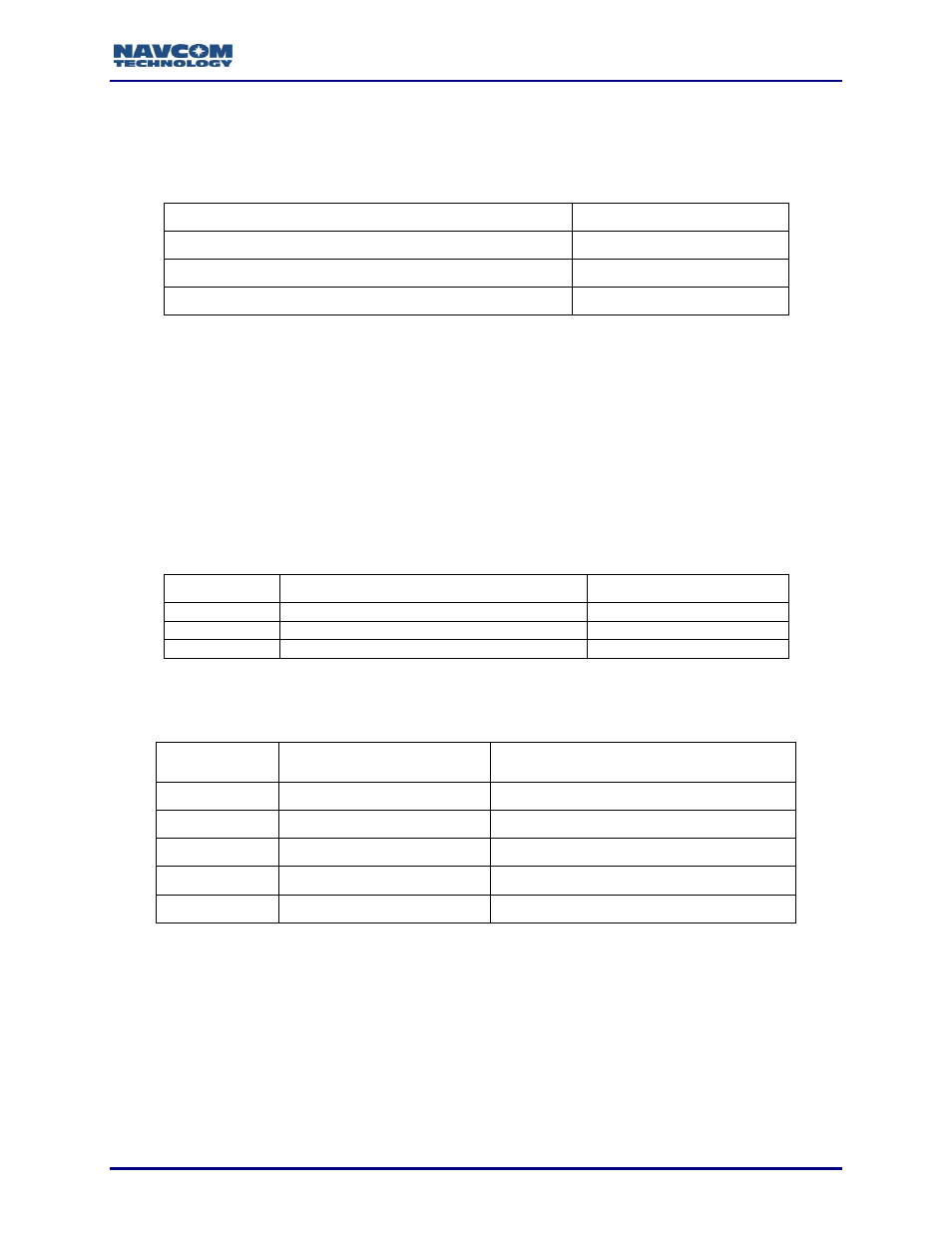Ellipsoid model, Transformation models, Three-parameter transformation – NavCom Sapphire Rev.J User Manual
Page 90: Seven-parameter transformation

Sapphire Technical Reference Manual Rev. J
90
In the examples below, the datum specifications from GDA94 (with simplification of the data
precision length) are used to demonstrate the user-input syntax for datum transformation.
1.31.5 Ellipsoid Model
Table 58: User-Defined Ellipsoid Model (with Sample Values)
Definition
User-Defined Values
Semi-major Axis (a)
6378137.0e0*
Inverse-flat (a/(a-b)
298.2572221010
Source Datum Reference Year
2000
* The user-defined value must be written in scientific notation. A number in scientific
notation is written as the product of a number (integer or decimal) and a power of 10. The
number has one digit to the left of the decimal point. The power of ten indicates how
many places the decimal point was moved (e.g., the scientific notation equivalent of
0.011 is 1.1.e
-02,
and for 0.125 it is 1.25e
-1
).
The ellipsoid model parameters are mandatory in any transformation model.
1.31.6 Transformation Models
1.31.6.1 Three-Parameter Transformation
Table 59: 3-Parameter Model Transformation (with Sample Values)
Value Order #
Parameter
User-Defined Values
1
translation in x (in meters)
-0.0761
2
translation in y (in meters)
-0.01
3
translation in z (in meters)
0.04
1.31.6.2 Seven-Parameter Transformation
Table 60: 7-Parameter Model Transformation (with Sample Values)
Value Order #
Parameter
User-Defined Values
1
– 3
3-parameter model
3-parameter model translation values
4
rotation in x (in arc-sec)
0.008
5
rotation in y (in arc-sec)
0.009
6
rotation in z (in arc-sec)
0.009
7
Translation Scale (in ppm)
7.935e-03
